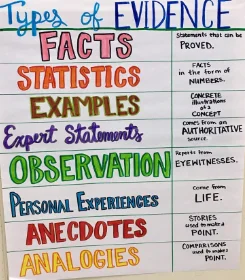Philosophy Paper Format: Guide How to Write a Philosophical Essay

Writing a philosophical essay is a journey into ideas where critical thinking and eloquent expression converge.
This guide will navigate you through the intricacies of philosophical paper format, helping you articulate your thoughts coherently, develop compelling arguments, and explore profound concepts.
Whether you are a novice philosopher or a seasoned thinker, this guide will assist you in crafting an essay that engages readers in philosophical discourse. Read on.
Philosophy Paper Format
Writing a philosophy paper is an intellectual endeavor that requires precision, critical thinking, and the ability to articulate complex ideas with clarity.

Whether you’re a student delving into philosophical discourse or a philosopher refining your thoughts, understanding the suitable format is essential.
We present a comprehensive guide to help you structure and compose philosophical essays effectively.
Introduction
Begin with a concise and engaging introduction that presents the central problem or question you will address.
Provide context for the issue and outline your thesis or argument.
Background and Context
Offer relevant historical, philosophical, or cultural context to help readers understand the problem’s significance.
Summarize critical theories or ideas related to the topic.
Thesis Statement
Present a clear, concise, and arguable thesis statement that encapsulates your main argument or position.
Argumentation
Develop your argument logically and coherently, providing evidence, reasoning, and examples.
Anticipate and respond to potential counterarguments.
Critical Analysis
Engage in critically analyzing concepts, theories, or arguments related to your topic.
Use philosophical tools like logic, ethics, and epistemology to evaluate ideas.
Structured Paragraphs
Organize your essay into well-structured paragraphs, each focused on a specific point or idea.
Ensure smooth transitions between paragraphs.
Clarity and Precision
Write in clear, concise, and precise language, avoiding jargon or overly complex terminology.
Define terms when necessary.
Conclusion

Summarize your main arguments and restate your thesis in light of the evidence presented.
Reflect on the broader implications of your findings.
Citations and References
Properly cite all sources, adhering to a recognized citation style (e.g., APA, MLA, and Chicago).
Include a bibliography or reference list.
Revision and Proofreading
Revise your essay for clarity, coherence, and logical flow. Proofread for grammar, punctuation, and spelling errors.
Writing a philosophy paper can be challenging, but with a clear understanding of the format and a commitment to rigorous thinking, you can craft essays that engage readers in profound philosophical discussions.
Remember that philosophy is about exploration, inquiry, and the pursuit of wisdom, and your essays contribute to this timeless quest.
How to Write a Philosophical Essay
Philosophical essays are a unique form of writing that invites readers to engage deeply with profound questions, challenge assumptions, and explore the complexities of human thought.
Whether you are a student tackling a philosophical assignment or a seasoned philosopher contributing to the ongoing discourse, crafting a philosophical essay follows a distinct path.
Here’s a comprehensive guide to help you navigate this intellectual journey.
1. Choose a Thoughtful Topic
Selecting a thoughtful topic is the initial step in crafting a compelling philosophical essay. It involves choosing a question, problem, or concept that piques your interest and possesses philosophical depth and relevance.

A thoughtful topic should be open to philosophical analysis, inviting critical examination and exploration.
It should inspire contemplation and reflection, and ideally, it connects to broader philosophical themes or debates.
Choosing such a topic sets the stage for meaningful philosophical discourse and ensures that your essay addresses issues that matter deeply within philosophy, fostering engagement and thought-provoking discussions.
2. Thorough Research
Thorough research is the cornerstone of a well-crafted philosophical essay.
It involves delving deep into the philosophical question or problem you’re exploring, immersing yourself in the relevant literature, and comprehensively understanding your topic’s historical, cultural, and philosophical context.
Through research, you gain insights into various philosophical perspectives, theories, and arguments related to your subject.
Also, this knowledge enriches your understanding and equips you to engage in critical analysis and construct well-supported arguments.
In essence, thorough research lays the foundation for a thoughtful and informed exploration of complex philosophical concepts.
3. Formulate a Clear Thesis
Develop a concise, arguable thesis statement encapsulating your main argument or perspective on the chosen topic.
Ensure your thesis is specific, debatable, and addresses the central issue.
4. Structured Introduction
Begin your essay with an engaging introduction that provides context for your topic and outlines the questions or problems you will address.
Present your thesis statement to guide readers.
5. Elaborate on Your Thesis
Use the body of your essay to present and elaborate on your thesis. Organize your ideas logically and coherently.
Each paragraph should focus on your thesis’s specific point or argument.
6. Critical Analysis
Engage in critical analysis by evaluating and assessing your topic’s concepts, theories, or arguments.
Use philosophical tools and methods, such as logic, ethics, or epistemology, to examine and critique ideas.
7. Present Evidence and Examples

Support your arguments with evidence, examples, and references to relevant philosophical works.
Use concrete illustrations to elucidate complex concepts.
8. Address Counterarguments
Acknowledge potential counterarguments and address them fairly and rigorously.
Demonstrating an understanding of opposing viewpoints strengthens your argument.
9. Clarity and Precision
Write in clear, concise, and precise language. Avoid jargon or overly complex terminology that may obscure your message.
Define terms when necessary to ensure clarity.
10. Structured Conclusion
Summarize your main arguments and restate your thesis in light of the evidence presented.
Reflect on the broader implications of your findings or the unresolved questions your essay raises.
11. Citations and References
Properly cite all sources, adhering to a recognized citation style (e.g., APA, MLA, and Chicago).
Include a bibliography or reference list to acknowledge your sources.
12. Revision and Proofreading
Revise your essay for clarity, coherence, and logical flow. Ensure each paragraph contributes to the overall argument. Proofread meticulously for grammar, punctuation, and spelling errors.

Writing a philosophical essay is about conveying information and inviting readers to engage in profound and critical thinking.
It is a dialogue with the great philosophical minds of the past and an opportunity to contribute to the ongoing conversation about the fundamental questions that shape our understanding of existence, ethics, knowledge, and reality.
As you follow this guide and embrace the spirit of philosophical inquiry, you can craft essays that inspire contemplation and meaningful discourse.
Philosophy Paper Topic Examples
These topics span various branches of philosophy and offer opportunities for in-depth exploration, critical analysis, and engaging philosophical discourse.
When selecting a topic, consider your interests, the philosophical questions that resonate with you, and the potential for meaningful philosophical inquiry.
Choosing the right philosophy paper topic can be both exhilarating and challenging. Here are some diverse examples to inspire your philosophical exploration:
- The Trolley Problem: Exploring Moral Dilemma
- The Ethics of AI: Can Machines Possess Moral Responsibility?
- The Nature of Time: A Philosophical Investigation
- Are Universals Real or Conceptual?
- The Gettier Problem: Reevaluating Justified True Belief
- The Role of Intuition in Philosophical Inquiry
- Social Contract Theory: Rousseau vs. Hobbes
- Liberty vs. Security: The Ethics of Surveillance
- The Mind-Body Problem: Dualism vs. Materialism
- Consciousness and the Hard Problem: Can It Be Solved?
- The Subjectivity of Art: Is Beauty in the Eye of the Beholder?
- The Ethics of Artistic Expression: Balancing Freedom and Responsibility
- Jean-Paul Sartre’s Existentialism: Freedom and Responsibility
- The Absurdity of Life: Camus and the Myth of Sisyphus
- Deep Ecology: Intrinsic Value of Nature
- Anthropocentrism vs. Biocentrism: Shifting Perspectives on Nature
- The Problem of Evil: Can God and Suffering Coexist?
- Faith and Reason: The Intersection of Science and Religion
- Ethical Dilemmas in Genetic Engineering
- End-of-Life Ethics: Euthanasia and Assisted Suicide”

Josh Jasen or JJ as we fondly call him, is a senior academic editor at Grade Bees in charge of the writing department. When not managing complex essays and academic writing tasks, Josh is busy advising students on how to pass assignments. In his spare time, he loves playing football or walking with his dog around the park.




